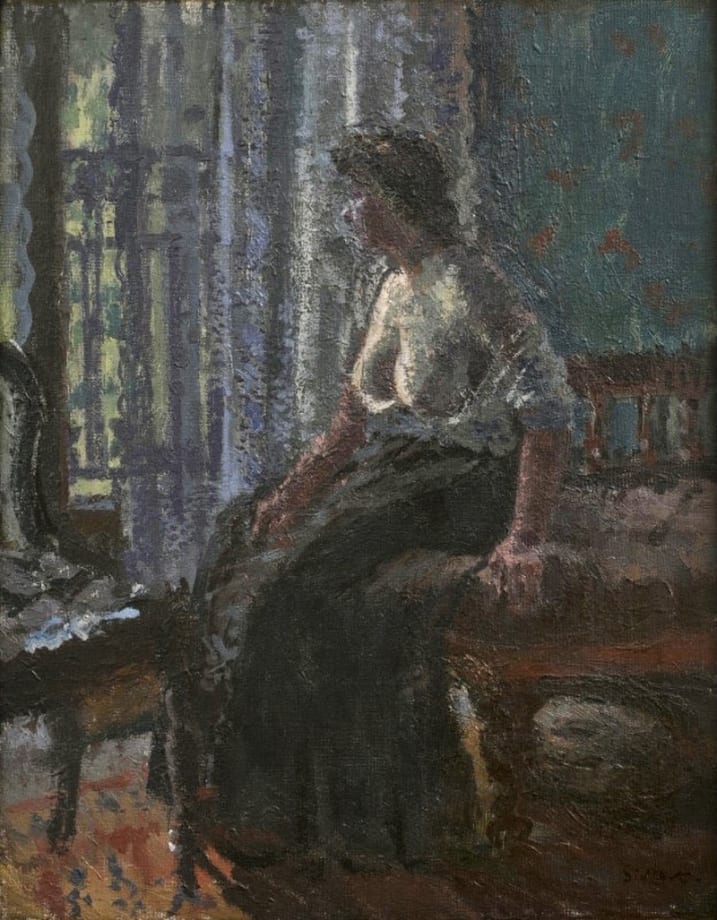Walter Richard Sickert, born in Munich, Germany, was a painter and printmaker who was recognised during his own lifetime as an important artist, and in the years since his death has increasingly gained a reputation as one of the most influential figures in twentieth-century British art.
Starting out his career as a pupil and assistant to James Abbott McNeill Whistler, Sickert later met Edgar Degas whose use of pictorial space and emphasis on drawing would have an influential effect on Sickert's work. Sickert developed a personal version of Impressionism deploying sombre colouration. He was fascinated by urban culture and consequently worked from studios in working-class areas in London, such as Camden Town, in which location he would create a series of paintings on a local gruesome murder on a prostitute that took place in 1907. This series The Camden Town Murder caused controversy not only because of the title but also due to the lugubrious nudes depicted in the paintings and ensured attention for Sickert's work. He furthermore was a founding member of the Camden Town Group, a group of British painters influenced by Post-Impressionism and Expressionism, concentrating on drab daily domestic scenes. Sickert not only concentrated on domestic scenes; scenes of Venice, music halls, theatre scenes and portraits were also important parts of his body of work. He consistently created his paintings in his studio working from drawings made on the spot and later from news photographs or snap shots. Sickert was universally acknowledged as a colourful, fascinating and charming artist, who championed progress and modernity in painting, but who remained an independent figure who was difficult to catagorise under the major movements in British art. His status as a notable but underestimated figure changed as his work was reassessed in the second half of the 20th century. Exhibitions in the Hayward Gallery in 1981 and the Royal Academy in 1992, as well as several publications on his work have established Sickert's important contribution to British modernism.
